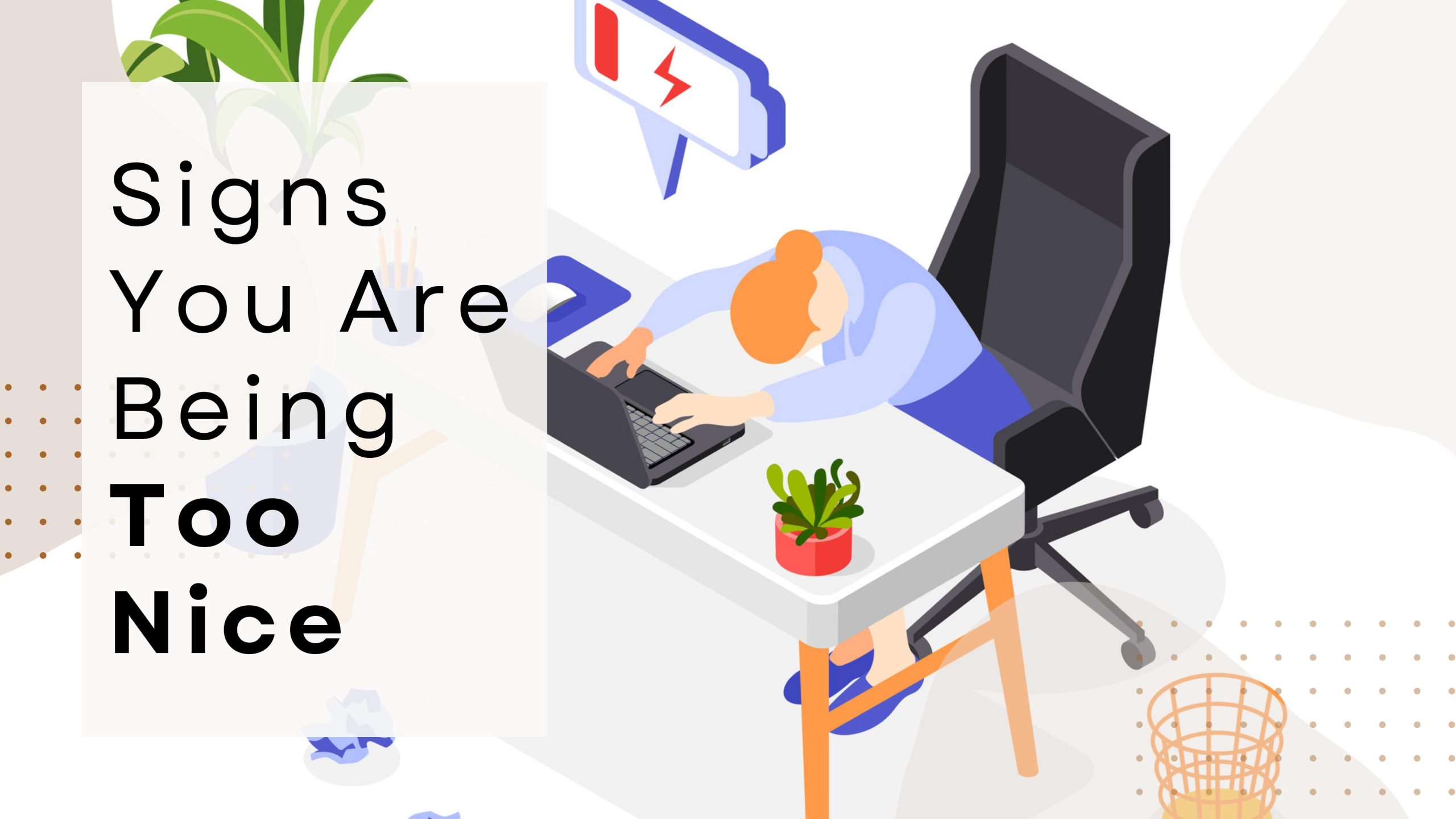Being a nice person is generally a good thing. Kindness not only helps other people, it can be a great asset for your mental health and overall well-being. However, there are times when we feel too nice or too accommodating, which translates into problems for ourselves and others.
Here are the signs that you are being too nice.
You feel responsible for other people’s feelings
The first sign that you might be taking too much on is that you feel responsible for other people’s emotions. You might be constantly checking to see if those around you are having fun or soothe them if they seem upset or angry. This is fine, to a degree, because it is important to be considerate of other people and how they are.
However, you cannot take responsibility for other people’s emotions to a degree where it hurts you or makes you do things you don’t really want to do, like agreeing to a favor, just so that the other person will not get upset.
You are willing to give too many second chances
Forgiving is good, but forgetting might be dangerous. If people have hurt you, you can forgive them, and this does not mean that you have to give them entry into your life or another chance, unless you truly want to.
When you allow others to come back into your life with no consequences, if they have hurt you, it can teach the wrong lesson. It might show people they can mistreat you and avoid making a change. When someone does you intentional harm, it’s important to use your best judgment with second chances, especially when there are third or fourth ones too.
You choose to please people first
Being a considerate person is a great thing to be! However, the limit between being considerate and overly pleasing lies in whether you hurt yourself or limit yourself. For example, you might want to share your opinion but instead let others talk on and on.
It can leave you feeling unimportant or ignored, and that is something that might not be good for you. It’s important to also give yourself your own place and ensure that you feel good about your interactions with other people.
You have complete availability
Being available to help others, whether in regards to work or personal matters, is a good thing a lot of the time. However, it is important that you also have time for yourself. If you make plans to stay in and watch a show, it’s a valid plan. You should not always choose others.
Boundaries are about valuing yourself and your time. It is important to have moments that are just for you and respecting the spaces you give yourself to breathe and rest. Doing nothing can be significant for your well-being, so don’t overschedule yourself.
You place your needs last
You have a responsibility towards yourself and your loved ones. This responsibility is taking care of yourself first. Nobody else should be expected to know your needs and respond to them more than you can. However, when you are too nice, you begin neglecting yourself.
It’s important to acknowledge your needs and manage them before focusing on others. Isn’t this selfish? It’s smart. It allows you to do better by others and create a sustainable way of living. If you give too much, there comes a point where you burn out and have nothing left to give. This does not only hurt you.
It can make you unable to keep supporting your loved ones. Your needs come before other people’s desires and their whims. In many cases, your needs should also come first, unless the other person depends on you, like a child. This helps you stay well and ready to help others too.
You allow others to engage in bad behavior
If you are too permissive of others, you let them engage in bad behaviors, like insulting, disregarding, or more, whether these are bigger or smaller things. But in doing so, you are not helping those around you. Rather, you might be encouraging them in behaviors that can hurt them and others too, just as they are hurting you. Remember that protecting yourself and setting boundaries is valuable, even if it’s difficult.



